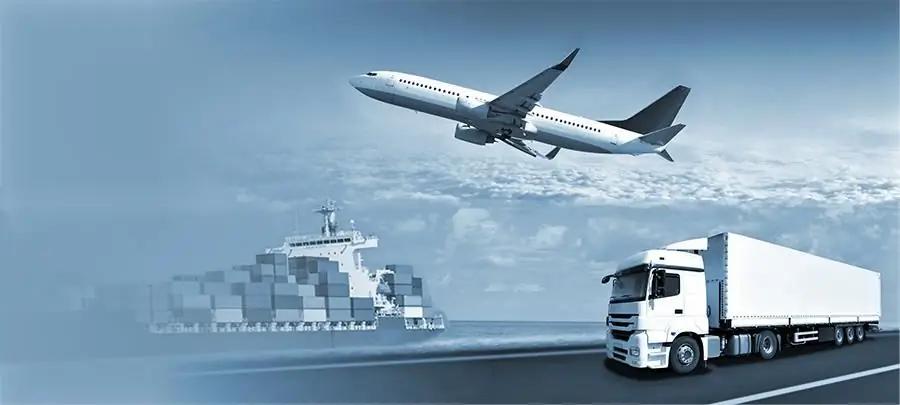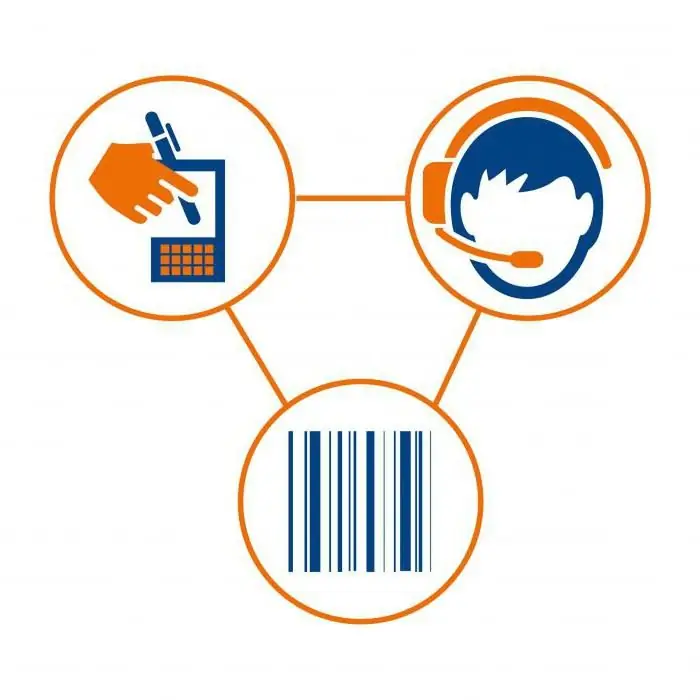2026 Author: Howard Calhoun | calhoun@techconfronts.com. Last modified: 2025-01-24 13:10:28
Such a term as logistics operations can be heard quite often in the field of trade and distribution. And this is not surprising, because the tasks that logistics includes are extremely important for the full-fledged work of any company, regardless of its profile and scale. Without understanding these processes, it will be extremely difficult to organize a profitable business.
What is logistics
This definition is used to refer to the science of transportation planning, management and control. This can also include warehousing and any kind of intangible and tangible operations that are performed before the moment the product or a specific resource is delivered to the desired point.

As part of the above process, various logistics operations related to the management of warehouses, stocks, transport, personnel can be performed. This also includes the organization of commercial activities, information systems, etc.
In fact, logistics is needed in order to effectively manage various material flows.
The essence of logistics operations
Initially, it makes sense to pay attention to the common definition of these processes. The concept of a logistics operation is used to refer to an independent part of the process within the framework of logistics, which is performed using one technical device and / or at one workplace (sorting, unloading, unpacking, warehousing, picking, packing, etc.).
You can give another definition. Operations of this kind are nothing but a set of actions that are aimed at transforming the information or material flow.
In this area, it is the material flow that can be called the key concept, which can be the result of warehousing, transportation or performing other actions with any resources, including products that can be defined as finished.
In order to manage such a process, it is necessary to quickly receive, process information and transmit it without delay.
Features of logistics operations
Despite their common essence, the operations of this profile are divided into several types, which should be paid attention to.
Tasks in the field of logistics can be divided into two key types - elementary and complex.
The second option may have some subspecies. These are basic, auxiliary and key operations. These directions should be discussed in more detail.

So, the key logistics operations are directly related to purchasing management, order procedures, inventory, physical distribution and production processes.
If we are talking about basic operations, then they should be understood as supply (purchase), production and, of course, sales.
Elementary logistics processes include unloading, loading, transportation, bagging, storage, receiving, stock removal, marking, sorting, etc.
The definition of ancillary operations is used when dealing with packaging, shipping, warehousing, collection of returnable waste, information and computer segment, return of goods and other services.
Physical distribution
When considering logistics operations and functions, the principle of separation of processes should be paid attention without fail.
The following descriptions will help you better understand these categories:
1. Procurement organization and management. This is a set of tasks, including planning the need for resources, choosing suppliers of material resources, calculating optimal delivery times and current purchase volumes. This category also includes the choice of the type of transport for delivery, the form of the delivery itself, the organization of contractual work, etc.
2. Maintain established customer service standards. Here we are talking about product quality control, after-sales service and the distribution of goods.
3. Pricing. The pricing strategy is most directly related to the logistics of production. The fact is that before determining the final cost of products, it is necessary to take into account all the logistics costs thatcompany (including after the release of the goods).

4. physical distribution. These logistics operations are complex and are part of a process such as distribution. They include processes related to the storage and movement of finished products.
Transportation and handling
This is another group of categories that can be divided on a physical basis. She deserves special attention:
1. Managing the order process. The essence of this process is to determine the order of both receiving and processing orders. This also includes planning the time of receipt of orders by the end consumer, organizing the work of logistics intermediaries or the distribution network formed by the company itself.
2. Transportation. These logistics operations are focused on the efficient search and operation of transport to ensure material flow. At the same time, we are talking not only about the transportation itself, it means a whole range of processes of transportation, forwarding, loading and unloading and not only.
3. Management of stocks of products that have already rolled off the assembly lines, as well as material resources. In this case, we are talking about the process of creating, controlling and regulating the level of stocks in processes such as supply, production and marketing. Logistics operations within this category are focused primarily on the consideration of the time factor.
Without effective organization of the delivery of resources to production and finished products to the end consumerit will be extremely difficult to be at the top of efficiency and profit. Proper management of the received resources also has a significant impact on the operation of the enterprise.
Operational management
This process, which is essentially the management of production procedures, is also important to touch on for a better understanding of the various facets of the topic under consideration.

In fact, we are talking about a key logistical function at the production stage, so it is given special attention. Within the framework of logistics, operational management is needed for the effective management of work in progress and material flows in general. Attention is paid to the tasks of space-scheduling, reducing the duration of the production cycle, forecasting possible needs in the sector of material resources, etc.
It is with the help of operational management that one can competently reduce costs, including in the framework of logistics, as well as significantly improve the quality of products.
Key varieties
When considering logistics operations and their types, five key functional areas related to the various stages of material flow cannot be ignored:
1. Production logistics. Tasks within this area are related to the management of material flows during the production of goods.
2. Purchasing logistics. At this stage, the consideration and selection of specific suppliers, the adoption of relevant measures in case of violationterms of delivery, conclusion of contracts and subsequent monitoring of the exact fulfillment of their conditions.

3. transport operations. It is the process of providing a company with transport - both its own and public use - for the planned movement of material flow.
4. Distribution logistics. At this stage, such a function as the sale of products is being implemented. At the same time, within the framework of this type of operations, both micro- and macro-tasks can arise. An example is the organization of the competent distribution of produced food products in the territory of the region or the whole region.
5. Information logistics. We are talking about effective end-to-end material flow management through the rapid processing and distribution of large amounts of information. This is especially true for large enterprises that have a large assortment, a significant coverage area and many customers. To accurately perform tasks that are relevant at this stage, modern information technologies are used, for example, microprocessor technology.
Conclusion
Obviously, each task associated with any logistics operation is extremely important for the enterprise, since the level of the company's overall performance depends on its successful implementation.

Failure at any stage of material flow can lead to financial losses. Thus, we can safely say that logistics is one of the keyelements of effective work of any organization, especially if it is large.
Recommended:
Logistics manager: job responsibilities, instructions, resume. Who is a logistics manager and what does he do?

With the development of the economy, the number of enterprises in its various sectors is also growing. Therefore, it is required to store and transport more and more different kinds of products. This activity should be organized by a certain specialist - a logistics manager, whose job responsibilities we will consider in this article
Cash and credit operations of banks. Types of banking operations

The main operations that a commercial bank performs are credit and cash. What are their specifics? According to what rules are they carried out?
Logistics concept: concept, basic provisions, goals, objectives, stages of development and application

In the article we will talk about the concept of logistics. We will consider this concept in detail, and also try to understand the intricacies of logistics processes. In the modern world, this area occupies a rather significant place, but few people have a sufficient idea about it
Types of banking operations. Settlement and cash services. Operations of banks with securities

Before you know what types of banking transactions exist, you need to understand some of the most important definitions. For example, what is the institution in question itself? In modern economic terminology, the bank acts as a financial and credit unit that performs all kinds of operations with both money and securities
Work in logistics. The concept, tasks and functions of logistics

After Russia's transition to a market economy, the rapid development of business began in the country. However, there are still problems in the field of business cooperation regarding the movement and delivery of raw materials, finance, information and finished products. The issues of organizing all these processes relate to the work of the logistics departments of the enterprise and individual logistics companies

